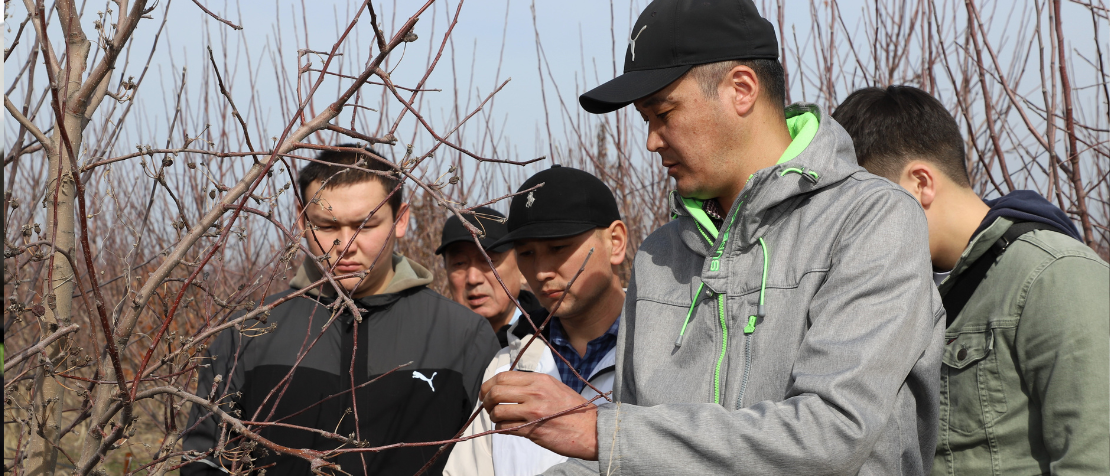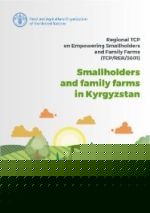FAO trains farmers in Kyrgyzstan in modern horticultural techniques

©FAO/Evgeniy Pechurin
Horticulture can not only help farmers improve their incomes and livelihoods but also offer nutritious food and healthy diets for citizens in Bishkek and around the world. However, achieving this will require a great deal of innovation.
For this reason, the Food and Agriculture Organization of the United Nations (FAO), together with the Kyrgyzstan Ministry of Water Resources, Agriculture and Processing Industry, launched the project “Introduction and promotion of innovative approaches for adopting best technologies for horticulture” in 2023 that aims to introduce and promote advanced practices and innovative solutions in horticulture in Kyrgyzstan.
Through support for nurseries and fruit producers, the project aims to make local horticultural products more competitive and accessible to consumers while raising the quality of the industry as a whole.
“Horticulture, fruit especially, is a labour-intensive sector,” said Kuvatbek Bapaev, Technical Adviser and Acting Deputy Representative of FAO in Kyrgyzstan. “Improving the efficiency and sustainability of the sector will also deliver economic, social and environmental benefits and contribute to achieving the 2030 Agenda for Sustainable Development.”
As new gardens and berry farms emerge, they will need high-quality and highly productive seedlings. Since planting material imported from other countries often is not of satisfactory quality, Kyrgyzstan has begun organizing its own efforts to produce planting material adapted to regional climatic factors and resistant to diseases.
Two new nurseries are growing rootstocks and seedlings of improved varieties of apples, cherries, pears, apricots and berries for multiplication and distribution among farmers. Established under the project at the Kyrgyz Research Institute of Agriculture under the Ministry of Water Resources, Agriculture and Processing Industry, these production centres carefully control the quality of the seedlings produced.
Another important component of the project is the training of agronomists and farmers in the main areas of planting material production: cultivation/inoculation techniques, fruit forming techniques, seedling technology, and the establishment, organization and management of nurseries.
The training is conducted by specialists from the Kyrgyz Research Institute of Agriculture, the Kyrgyz National Agrarian University named after K.I. Skryabin and the Kyrgyz-Turkish Manas University. Kyrgyz-Turkish Manas University.
The first phase of the training, which took place from February to March, was attended by farmers from the Sokuluk and Issyk-Ata regions of Chu oblast.
“When laying gardens, first of all, you need to pay attention to the quality of planting material, to the planting of zoned varieties, to the price policy,” said Birjan Usubaliev, Director of the Kyrgyz Research Institute of Agriculture. “Our overall strategic goal is to increase yields and improve product quality. That is why innovative technologies and approaches are essential.”
Theoretical classes and practical trainings take place during training “field days” in an intensive garden in the Moscow region of Chu oblast. In addition to studying modern technologies in horticulture, such as drip irrigation and microclimate control systems, participants improve their basic skills. For example, one of the field days is devoted to the rules for cutting fruit trees.
The project plans to train more than 60 specialists, preparing them to lead the future development of nurseries in general – sustainably providing farmers with domestically produced planting material adapted to soil and climatic conditions in the context of climate change.
Related publication

